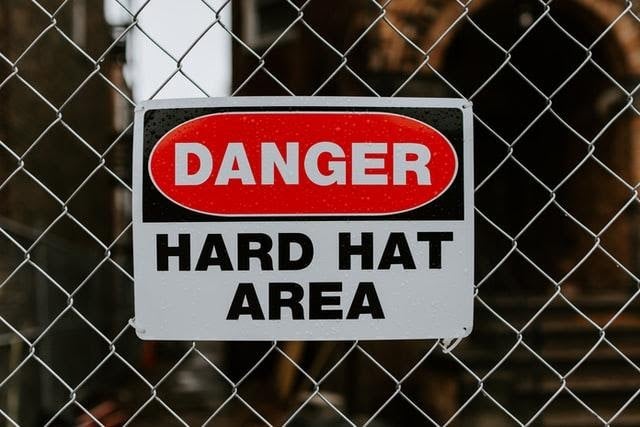You’re Being Sued for a Work Accident: Here’s What to Do
By: Cynthia Madison

Workplace injuries are increasingly common around the world. There are approximately 340 million work-related accidents and disasters each year, as reported by the International Labor Organization. Evidence shows that injuries are largely underreported, which is believed to be present in countries at all levels of development. An occupational accident can result in serious negative effects for any business. The publicized dispute can take its toll on the company’s reputation, not to say that the lawsuit can be a drain on finance energy, time, and resources.
Photo credit: Unsplash
If someone gets hurt while on the premises of your business, you could face litigation risks. This is possible due to workers’ compensation laws, which demand that the employer pays for the care of employees injured on the job. Generally speaking, workers’ compensation includes any or all of the following:
- Medical expenses
- Lost wages
- Vocational rehabilitation
- Lump-sum payments for permanent injuries
In spite of the fact that workers’ compensation payments don’t allow employee lawsuits against the employer, there are cases when an employee can hold the employer accountable for an on-the-job injury. If the injury resulted from purposeful human action or it was outside the scope of the worker’s job assignment, the employee can sue because their rights have been violated. Before making a claim, it’s worth calculating how much compensation can be obtained. This isn’t always straightforward or simple, so it’s necessary to discuss the case with a lawyer.
Frivolous or warranted, it’s paramount to take personal injury claims seriously and do your best to solve the issue. In the beginning, you might feel overwhelmed, upset, and even outraged. Nevertheless, it’s important to keep calm and handle the lawsuit appropriately. Your public relations team will have their work cut out for themselves.
How to prepare if your business is sued for a workplace accident
Reach out to your lawyer and ask for advice
Review the case with your attorney, the allegations in particular. Preserve all data that’s connected to the legal action. It’s essential to preserve business records, whether emails, photos, web pages, and voice messages. Delaying talking to your lawyer will only result in missed deadlines to file documents in response to the personal injury claim.
Inform the insurance provider about the claim
Workers’ compensation insurance might protect you from a lawsuit relating to employee injuries. If you fall under the umbrella of what the policy covers, you’ll be able to pay the lawyer’s fees, court costs, and any settlement. Reach out to your insurance provider as soon as possible.
Establish how you want to proceed
Decide if you want to take things to trial or reach an agreement with the other party. You have to provide a written response to the lawsuit, typically, in 30 days. Your lawyer will help you weigh in the decision. Ask them to clearly explain the litigation plan and if there are possible exit strategies.
What legal elements have to be in place for a business to be liable for injuries to its workers?
As an employer, you’re obligated to provide a safe working environment. No matter how many precautions you take, you might deal with a workplace injury. There are certain circumstances that warrant personal injury litigation. In what follows, we’ll highlight the basic elements of a personal injury case:
- A duty of care owed by the business
- A breach of that duty of care
- Harm resulting from that breach of care
To put it simply, as an employer, you’re legally obligated to ensure the health, safety, and well-being of employees. You’ve agreed to take on that responsibility from the second that you’ve recruited personnel. If the employee is able to determine and prove negligence, they will have the upper hand and can secure a large settlement. If you don’t act in a reasonable manner to prevent foreseeable injuries, you’ve breached your duty of care. For the lawsuit to succeed, the employee must demonstrate gross negligence and that it resulted in their injury.
Types of workplace injuries that can put you out of business
Work injuries are events that can take place at any time and place. They don’t necessarily occur in buildings under construction or manufacturing facilities. As mentioned earlier, employer immunity over being sued isn’t absolute. If you’re curious to know what types of injuries your employees can sue for, please continue reading.
Injuries caused by non-compliance
Compliance is vital for the workplace. Safety at work can impact the ability to win over new clients, not to mention that it’s one of the deciding factors when an employee chooses the company over the competitors. If you refuse to comply, you’re personally liable. Imagine the following situation: Your employees work with power presses. There’s the danger of injury at the point of operation where the stock is inserted, held, and withdrawn. If you remove the guards on the power press and an employee is hurt, you face litigation risks.
Injuries in traffic accidents
If an employee uses a vehicle for work-related purposes, you may be on the legal hook. You must pay for damages if the accident took place while the employee was on the job or their actions fell under the scope of employment. For instance, if a pizza driver was rushing to make a delivery when a car hit them, you’re legally responsible.
Toxic torts
At times, employees are required to manipulate toxic and volatile compounds. They can lead to serious illnesses, so these chemicals come with lawsuits. Toxic torts are special elements of personal injury law. They’re the most complex civil claims and require expert testimony, just so you know.
When it comes to avoiding business lawsuits, there are several steps you can take
The best practices for preventing and avoiding work-related accidents and disasters include eliminating shortcuts, conducting emergency drills, watching out for potential causes of accidents, and posting safety guidelines. It’s best to stop problems before they arise. Have a chat with your employees and let them know that you’re available to listen if they have any concerns. Workplace accidents don’t have to be an inevitable part of the job.
3262 Views













